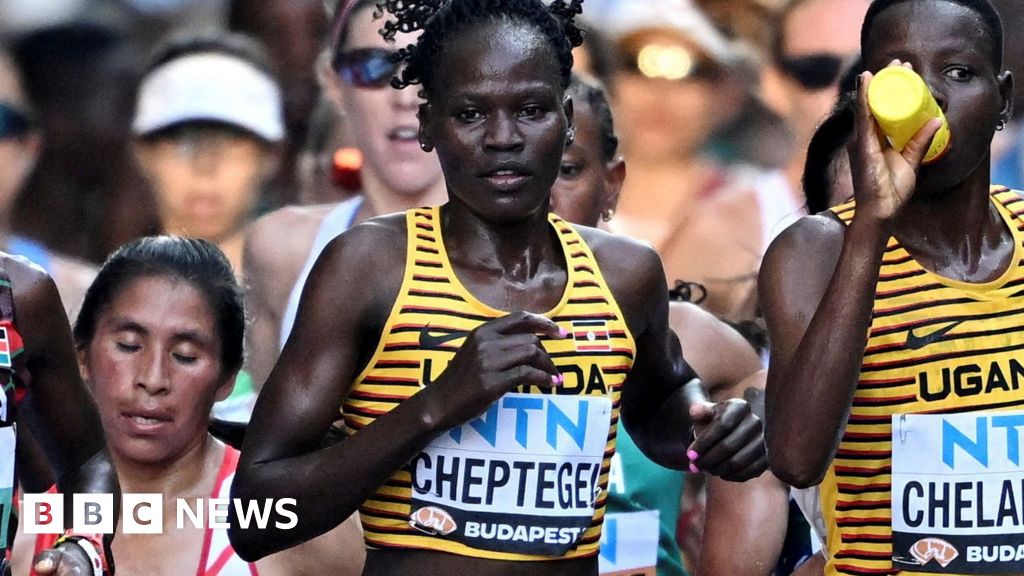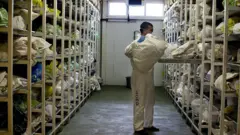BBC Hindi, Delhi
On Sunday morning, the New Delhi Railway Station in India’s capital looked much like it always does; bustling, with its many platforms full of eager, impatient passengers waiting to catch their trains.
But on Saturday night, a deadly crush – reportedly caused by overcrowding – killed at least 18 people and left several injured.
According to officials, two trains had been delayed at the station, while a third – heading to Prayagraj city where the massive Hindu religious festival, Kumbh Mela, is being held – was waiting to depart as people pushed against each other.
The crush occurred after “a passenger slipped and fell on the stairs”, a spokesperson for Indian Railways said.
Opposition leaders have criticised the government, alleging that Indian Railways did not make adequate arrangements to manage crowds at the station.
An investigation has been launched, and authorities have announced compensation for the victims.
When asked by the BBC about safety and security at the station, Pankaj Gangwar, Principal Chief Security Commissioner of Northern Railway, said “let the investigation be completed first”.
Crushes like these are not unheard of in India, where there is frequent overcrowding at religious events, festivals and public spaces. Last month, 30 people were killed and dozens injured in a crush at the Kumbh Mela.
Crowds at the railway station were also not unexpected – trains are by far the cheapest long-distance mode of transport in India and it is common for the number of passengers to far exceed the capacity of trains.
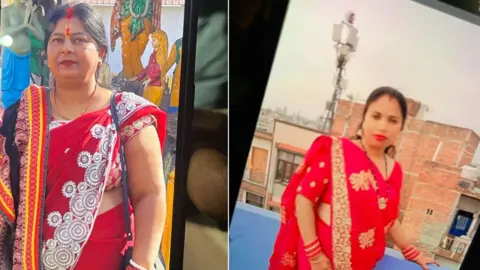
Eyewitnesses and the families of victims have been recounting their ordeal. Many of them were angry at authorities and police officials at the railway station, who they say did not act in time.
Some eyewitnesses said the crush was not limited to one place but took place on the overhead bridge, staircases and platforms.
Bipin Jha was at the station to meet his wife Mamta, who was arriving on a train. She died in the crush.
“I met her at the platform and we were walking on the footbridge overhead when she was trapped in the crush. She died in front of my eyes. I will live my life with the guilt of not saving her,” he says.
“We were on the stairs, suddenly we felt a push from behind. We fell, along with many others, and were trapped under bodies. I was barely breathing,” said Seema, whose sister-in law Pinky Devi died on the staircase.
Usha Devi, who was travelling to the eastern state of Bihar for her nephew’s wedding, said chaos erupted the moment she reached the platform.
“Many people fell. Everywhere, there were scattered belongings, food items and clothes. I was on the verge of fainting. So many people were collapsing. The crowd was so dense that we couldn’t board our train.”
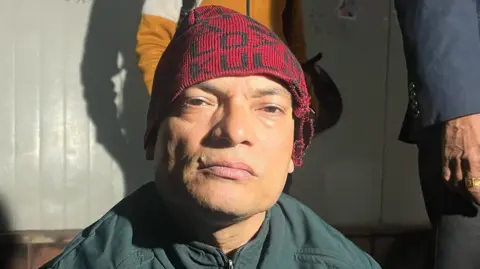 Abhinav Goel
Abhinav GoelUmesh Giri’s wife Shilam Devi was among the victims.
“The crowd became uncontrollable,” he told BBC Hindi while waiting outside the mortuary at Delhi’s Maulana Azad Medical College.
“I saw several bodies already lying there. People were colliding with each other, and others started falling over them,” said Mr Giri, who was also injured.
He added that help took time to arrive and that he pleaded with officers for help.
Senior police and railway officials at the scene did not respond to the BBC’s request for comment.
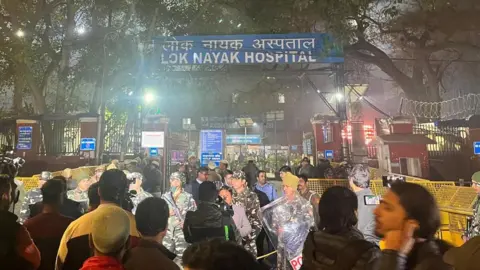
Most of the victims were taken to the Lok Nayak Jai Prakash Hospital in New Delhi, where police and paramilitary forces were deployed, and railway authorities had set up a help desk to assist families. Journalists were not allowed to enter the hospital on Saturday.
Relatives of victims shared their grief with reporters waiting outside, while also expressing anger at the facilities in the hospital.
“Multiple people were crammed onto a single bed,” alleged Shobha, the sister-in-law of Shilam Devi.
Others coming out of the hospital also confirmed this. Hospital authorities did not respond to the BBC’s request for comment.
At Lady Hardinge Hospital, the grieving family of Riya, 7, completed the paperwork so they could receive her body.
“No child deserves to die like this”, her uncle Vivek said, wiping away tears.


